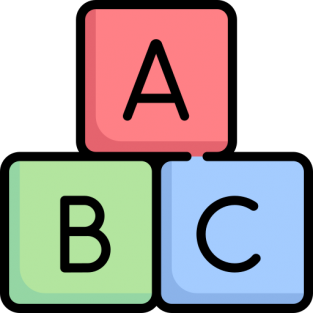In this post we show you some of the differences between Brazilian Portuguese and European Portuguese. If you have always been curious about this, this post is for you! Check it out!
1. Differences in Pronunciation
You need to be aware that most of the time you will only see these differences in speaking not in writing. The written form is mostly the same in Portugal and in Brazil.
L sound:
The L in the end of words and syllables in Brazilian Portuguese sound like “u” and not like “l”. In European Portuguese, the sound is the same as in English and Spanish.
Examples: Papel – Mel – Brasil
S sound:
In Portugal, people tend to pronounce the S in the end of syllables as [sh], while in Brazil people tend to pronounce it as [s]. But of course there are some exceptions. For example, in Rio de Janeiro, people pronounce the S in the end of syllables just as it is pronounced in Portugal.
Example: Português (Portugal: Portugueish / Brasil: Portugueiss)
O in the end of words:
In Brazil, the letter O in the end of words normally sounds like “u”. In European Portuguese, they often keep the original sound of the letter – “o”.
Examples: Carro – Martelo – Afeto – Acordo
The sound of VOWELS:
In Brazil, we can identify the sound of vowels easier than in Portugal. The impression we Brazilians have when listening to someone speaking European Portuguese is that this person is only saying consonants. Take a look at the word “colesterol”. In Portugal, they say “colstrol”. In Brazil, we tend to say every single vowel in the word.
And Portuguese people normally say vowels with a closed sound, while Brazilians will say them with an open sound. (But of course we have vowels with closed sounds as well, like “flor”, “amor”, “avô”, “vermelho”, “terreno”, and many many others).
2. Differences in Vocabulary
Words that exist in both countries, but have different meanings:
- Cacete
Brasil: slang or bad word for penis
Portugal: Bread
- Punheta
Brasil: slang for handjob
Portugal: a dish made with codfish
- Cueca
Brasil: men’s underwear
Portugal: women’s underwear
- Bicha
Brasil: offensive slang for homossexuals
Portugal: line, queue
- Rapariga
Brasil: offensive way of referring to a woman
Portugal: woman, lady (not offensive)
- Banheiro
Brasil: bathroom or restroom
Portugal: lifeguard
- Apelido
Brasil: nickname
Portugal: surname
- Prego
Brasil: nail, brad
Portugal: steak in a bread
3. Words that are translated differently in each country:
- Answering the phone:
– Brasil: Alô, quem fala?
– Portugal: Estou, quem fala?
- Cellphone:
– Brasil: Comprei um celular novo.
– Portugal: Comprei um telemóvel novo.
- Bathroom:
– Brasil: Tem alguém no banheiro?
– Portugal: Está alguém na casa de banho?
- Bus:
– Brasil: Qual é o ônibus que vai para o centro?
– Portugal: Qual é o autocarro que vai para o centro?
- Train:
– Brasil: Você tem que pegar o trem até lá.
– Portugal: Você tem que apanhar o comboio até lá.
- Bus stop:
– Brasil: Onde fica o ponto de ônibus?
– Portugal: Onde fica a paragem de autocarro?
- Juice:
– Brasil: Gosto de tomar suco natural.
– Portugal: Gosto de beber sumo natural.
- Breakfast:
– Brasil: Que horas vocês servem o café da manhã?
– Portugal: A que horas vocês servem o pequeno-almoço?
- Bacon:
– Brasil: Gosto de bacon.
– Portugal: Gosto de presunto.
- Ham:
– Brasil: Prefiro presunto.
– Portugal: Prefiro fiambre.
- Screen:
– Brasil: A tela do meu computador é grande.
– Portugal: O ecrã do meu computador é grande.
Now that you learned this differences, watch the class in which we talked about them. CLICK HERE.
You can watch this other class here to learn more about differences between Brazilian Portuguese and European Portuguese. CLICK HERE.
Hey,
o que você achou deste conteúdo? Conte nos comentários.















Terei cuidado com as palavras no Brasil – eu acho que as palavras que estao bem em portugal nao estao bem no brasil 😀
Parabéns!!! Eu adoro essa aula! Espero que vocês têm mais aulas bônus como essa no futuro.